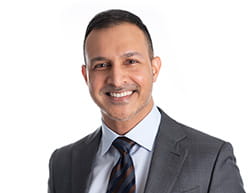The UK’s initiative in encouraging private capital to meet
public need reached its zenith in the early 2000s with the rollout of an
extensive programme of public sector building funded under the Public Finance
Initiative (PFI), itself an exponent of the Public Private Partnership (PPP)
model.
Though PFI/PPP has become something of a political football in the UK these days, its principles and structures – and the lessons learned during its development – are underpinning a remarkable and unprecedented interest in affordable housing in the Middle East.
"Politically, the governments of the region have come under real pressure to deliver social and affordable housing, particularly in the wake of the so-called Arab Spring,” explains Abdul-Haq Mohammed, international managing partner at Trowers & Hamlins, who is based in the firm’s Bahrain office and leads its affordable housing initiative in the region.
Trowers is currently working on four Pathfinder projects across the Gulf, ranging from the first-ever social housing PPP for the Government of Bahrain, to what might be one of the largest PPP projects ever undertaken: the Kuwaiti government’s plan to build 9,000 affordable dwellings.
The casual observer may be forgiven for asking why Gulf governments might need private capital, given the perception of how wealthy they are, but as Mohammed explains: “Public sector budgets have in recent years been predicated on the basis of reasonably high oil revenues, so while we may have seen a peak of over $100 a barrel not too long ago, they have tended to plan at a level of $65–$75. Now, with oil at araound $28 a barrel, that means a large deficit, hence the need to attract private capital.”
Of course, the need for capital is not the only factor driving the use of PPP-type structures. In many instances the private sector can allocate capital more efficiently than the public sector can, and private sector providers bring expertise and experience public authorities do not have, as well as spreading the risk.
While big funders are still more interested in things like power projects, where there is a continuing ‘offtake’ as generating capacity comes onstream, affordable housing projects have certain advantages over other investment opportunities.
“Property has always been an asset class of considerable interest to investors in the region, and after the financial crash, and the failure of some speculative luxury residential developments, these kinds of housing projects offer a much more solid return, coming as they do with government backing,” Mohammed explains, but he says there have been challenges to overcome.
"The lack of legislative or infrastructure frameworks means that we’ve had to do a lot of the groundwork, putting basic structures in place.”
One project of this kind saw the firm appointed alongside consulting firm KPMG to advise the Supreme Council for Planning (SCP) in Oman on a pilot housing project, after which the SCP approached the firm directly to completely overhaul the housing framework in the Sultanate, including drafting a new policy on housing and a new law, which envisages the creation in time of a new independent housing authority.
While Trowers has compiled comparative studies of similar initiatives in such diverse places as Singapore, Denmark, Taiwan and Jersey so that clients can compare available solutions, governments in the GCC (Gulf Cooperation Council) seem most interested in learning from the UK model.
"One issue has been that the UK is so far ahead in some senses that we couldn’t implement certain elements,” says Mohammed. “For instance, one client was very excited about using ALMOs (Arms-Length Management Organisations), but you don’t have the structures or the scale for that right now in the GCC. You might look at that in 10 years’ time but not for now. If it does evolve in that direction though, I can see Middle East housing becoming of real interest to some of the UK’s sophisticated FM providers such as Capita or Serco.”
Mohammed says there are other reasons why UK practice cannot be directly applied in the Gulf. "Each of the Gulf nations, despite them being relatively young states, has a deep, longstanding culture, and it is very important to understand where UK thinking might need to adapt to local norms.”
Funding, for instance, has been a strictly local affair thus far. The Bahrain PPP was underpinned by funding from a major Islamic bank using Islamic finance structures, although Mohammed is quick to point out that non-Islamic funders would not necessarily have to go down that route.
It seems unlikely, however, the GCC would follow the UK in using public-private hybrid financing techniques to develop a large private rented sector, at least for now. “In the Gulf, the intention is usually to build properties for people to buy, rather than rent,” says Mohammed, “so that might be less interesting to, say, a pension fund looking for regular, high rental income from a build to rent scheme.” Where leasing is used, it is for the lowest income tier and the appetite for innovation in that area is lower.
Building on its work in the Gulf, the firm has been exploring working with UK Government bodies, such as UK Trade & Investment, to develop such structures as a recognised export product. Other countries with large, often young, populations and high levels of housing demand, such as Saudi Arabia, Malaysia and South Africa, are on its radar.
“Investors will, inevitably, be very concerned about stability and about their return, but it’s vitally important to look at the underlying structure pursuant to which investment will flow in the future,” cautions Mohammed.
He points again to the Omani experience. “There, we had to look at the general framework of property law and property rights, as a robust property ownership system boosts the economy. If you get that right, you’ll encourage investment in the longer term.”
